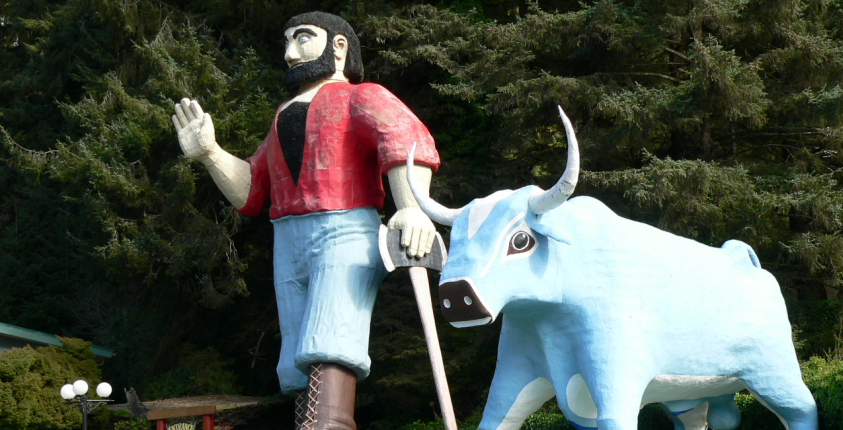Paul Bunyan and the Round River

It’s here! Do you know what day it is? Probably not unless you’re a lumberjack. It’s Paul Bunyan Day.
You may remember Paul and his big blue ox, Babe, from childhood stories. The 7 foot tall lumberjack (who apparently had a stride of 7 feet as well – must have skipped a lot), wandered the woods of early America performing feats of incredible strength. Starting in oral tradition, he has since become a big part of written American stories – embodying the strength of character and will that has come to signify American society.
While there are many stories from Mr. Bunyan and his blue ox, one in particular stood out to me as it relates to business – the story of Paul Bunyan and the Round River.
In it, Paul and his team of lumberjacks (who were all named Elmer in a George Foreman-esque move) put a fresh load of logs in the Round River and hop on to float them down to the mill and pay-dirt. After 3 days on the river, they spot a camp that looks remarkably like theirs did, but they’re very busy with their work and so they keep their head down and continue on their way, assuming it is just another logging operation.
Related: 7 Awesome Facts About American Small Business
3 days later, they pass another camp. Now Paul was the first scout in this part of the country and this second camp was just too much to stomach. He had claim to this part of the forest. So he gets out of the river and walks up to the main building to complain to the camp boss. Paul is shocked to see his camp cook, Sourdogh Sam, come out of the cook tent. Sam informs him that this is their camp and then says to Paul, “We’ve been watchin you fellers floating past the camp every couple of days with the lumber and we’ve been wondering where you think yer going!”
Armed with this new information, Paul then turns the Round River into a lake by digging out the middle and digs a canal to the river that will bring him and his lumber to the lumber mill.
This story reminds me of a quote – you have to see the signs, the signs are reality. In a small business, it’s easy to work so hard that you miss the signs. Paul and his crew saw the camp – they thought it looked like theirs, but they were so busy that they put their heads back down and drove right past. You have to avoid that trap – you have to be ready to see the signs, because, in the end, the signs are all there are.
